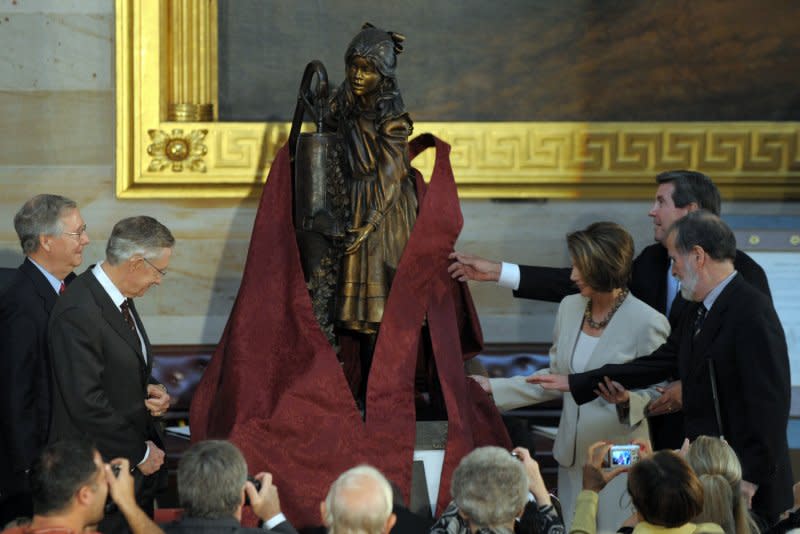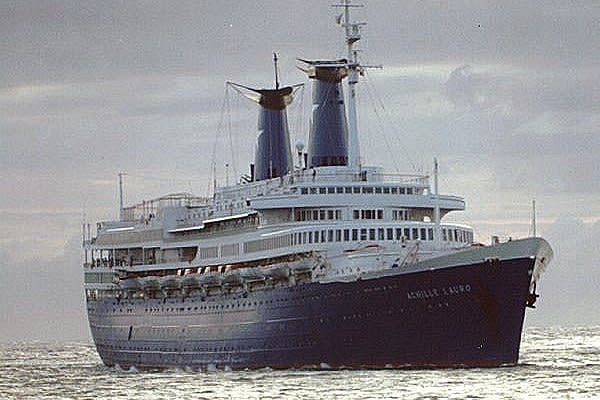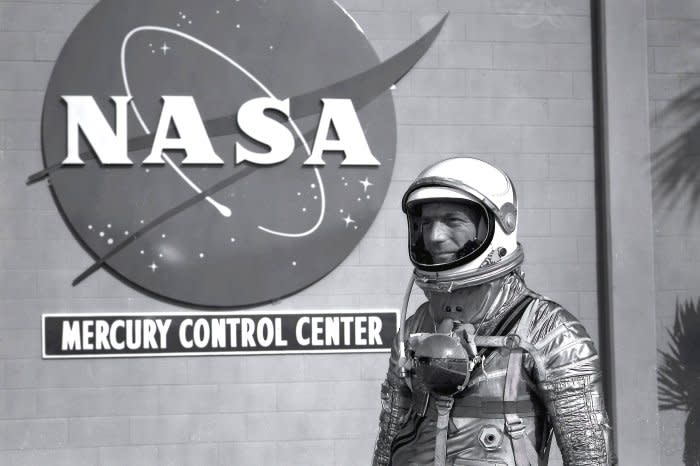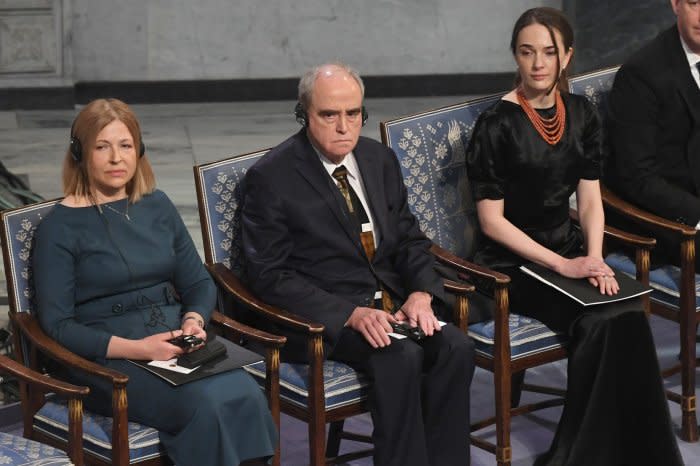On This Day, Oct. 7: Statue of Helen Keller unveiled at Capitol

- Oops!Something went wrong.Please try again later.
- Oops!Something went wrong.Please try again later.
Oct. 7 (UPI) -- On this date in history:
In 1913, for the first time, Henry Ford's entire Highland Park automobile factory was run on a continuously moving assembly line.
In 1916, Georgia Tech defeated Cumberland University 222-0 in the most lopsided college football game in American history.
In 1949, less than five months after Britain, the United States and France established the Federal Republic of Germany in West Germany, the Democratic Republic of Germany (East Germany) was proclaimed within the Soviet occupation zone.
In 1958, the U.S. manned space-flight project, originally called Project Astronaut, was officially approved, and renamed Project Mercury.


In 1963, President John F. Kennedy signed the Limited Test Ban Treaty. Signed by the Soviet Union, the United Kingdom, and the United States, the treaty was developed to slow the nuclear arms race and reduce the amount of nuclear fallout in the earth's atmosphere.

In 1968, the U.S. movie industry adopted a film ratings system for the first time: G (for general audiences), M (for mature audiences), R (no one under 16 admitted without an adult) and X (no one under 16 admitted).
In 1985, a mudslide in Ponce, Puerto Rico, killed an estimated 500 people in the island's worst disaster of the 20th century.
In 1985, Palestinian terrorists hijacked the Italian cruise ship Achille Lauro after it left Alexandria, Egypt, killing one American.
In 1991, Slovenia and Croatia formally declared secession from Yugoslavia.
In 2003, Californians voted to recall Democratic Gov. Gray Davis and elected actor Arnold Schwarzenegger, a Republican, as their new governor.

In 2004, Cambodian King Norodom Sihanouk abdicated the throne.
In 2009, a statue of blind and deaf 7-year-old Helen Keller at the moment she got a sense of language was unveiled at the U.S. Capitol. She is shown at a pump with water running into one hand while alphabet motions on her other hand (by teacher Anne Sullivan) spell "w-a-t-e-r." Keller went on to become a world-famous speaker and author of a dozen books.
In 2022, detained Belarusian democracy activist Ales Bialiatski, Russian human rights organization Memorial and Ukrainian human rights organization Center for Civil Liberties were named the three co-winners of the Nobel Peace Prize.


